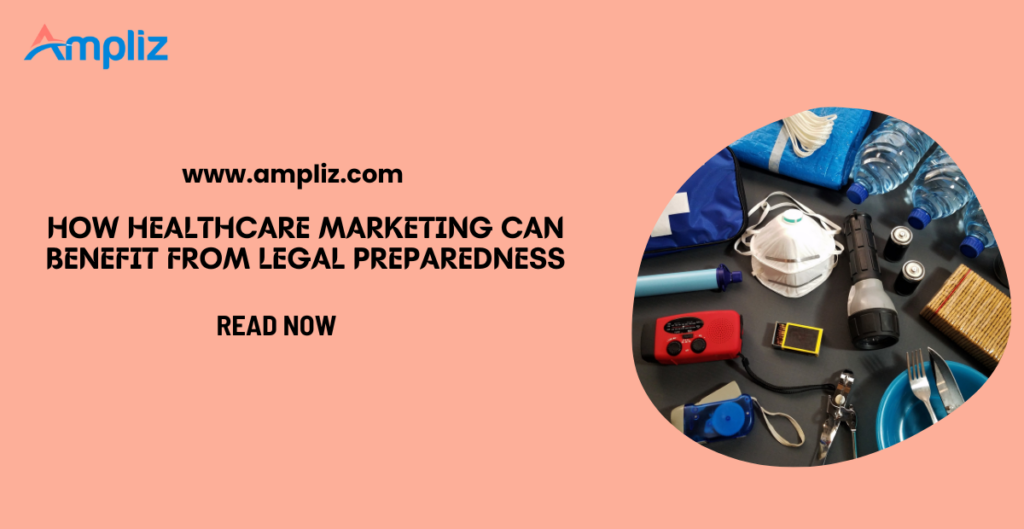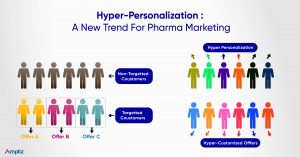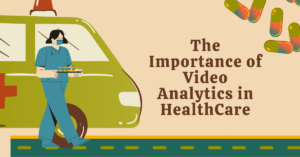Legal preparedness has become increasingly crucial in healthcare marketing – offering a strategic advantage in an ever-evolving industry. By aligning with legal frameworks, marketers protect their brands and enhance patient trust.
This article explores how legal insights boost compliance, safeguard reputation, strengthen data privacy, and more. So, discover ways to harness legal readiness for long-term success.
By Improving Compliance, Marketers Build Patient Trust
Just like law students need to practice MBE questions before sitting the bar exam, marketers in the healthcare industry need to prepare for legalities before pursuing marketing campaigns – if they are to be successful.
Legal preparedness in healthcare marketing starts with understanding and adhering to compliance standards. This approach reassures patients that their care and privacy remain a priority.
By prioritizing legal compliance, healthcare marketers establish trust with consumers who value transparency.
Ensuring every campaign aligns with current regulations helps avoid costly fines and builds confidence in your brand’s commitment to ethical practices.
Consider these key strategies:
- Conduct regular audits of marketing materials.
- Stay updated on industry-specific regulations.
- Train staff on compliance requirements.
- Use transparent communication regarding data usage.
Implementing these steps fortifies trust, enhances reputation, and minimizes risk.
Legal diligence transforms into an ally for growth while reassuring patients they can rely on you for integrity-driven service.
Legal Knowledge Can Safeguard Brand Reputation
A solid legal foundation is essential for safeguarding a brand’s reputation in healthcare marketing. Understanding relevant laws and regulations can prevent potential pitfalls that might tarnish your image.
Legal knowledge helps avoid missteps in advertising, promotions, and patient communications.
By ensuring all activities comply with industry standards, brands demonstrate accountability and reliability to their audience.
Consider these measures:
- Regularly review advertising content for accuracy.
- Ensure all claims have verifiable evidence.
- Incorporate legal reviews into campaign development.
- Educate marketing teams on compliance updates.
These practices not only protect against litigation but also enhance public perception of the brand.
With informed strategies, healthcare marketers can confidently navigate complex landscapes while maintaining an untarnished reputation built on trustworthiness and ethical conduct.
Being on Top of Legalities Strengthens Data Privacy in Marketing Practices
Data privacy is paramount in healthcare marketing. Legal preparedness ensures that patient information remains protected – maintaining trust and compliance with regulations like GDPR and HIPAA.
By safeguarding data, marketers not only follow the law but also build credibility.
Patients need assurance their personal details are safe, especially when interacting online or through mobile apps.
Implement these strategies:
- Adopt encryption for sensitive data storage.
- Establish clear privacy policies and share them with users.
- Regularly audit systems for potential vulnerabilities.
- Train staff on best practices for data handling.
These efforts help prevent breaches that could damage reputation and lead to financial penalties.
When patients see a brand prioritizing their privacy, it strengthens loyalty while demonstrating a commitment to ethical standards.
Navigating Intellectual Property Rights Can Give You a Competitive Advantage
In healthcare marketing, understanding intellectual property rights can give you a competitive edge.
Legal preparedness ensures the protection of unique ideas and innovations. By securing trademarks, patents, or copyrights, businesses will maintain exclusivity over their branding elements and technologies.
This not only prevents unauthorized use but also strengthens the market position.
Consider these steps:
- Conduct thorough searches to avoid infringing on existing IP.
- Register trademarks for distinctive logos or slogans.
- Secure patents for innovative medical devices or software.
- Review agreements with partners to protect shared IP.
Implementing these measures safeguards creative assets and fosters innovation.
With proper legal frameworks in place, marketers can confidently leverage unique offerings while reinforcing their brand’s standing in the marketplace.
Leveraging Ethical Standards Can Improve Customer Engagement and Loyalty
Ethical standards in healthcare marketing do more than just meet legal requirements. They play a crucial role in enhancing customer engagement and loyalty.
When marketers uphold ethical principles, they foster transparency and build deeper connections with their audience.
This commitment reassures patients that the brand values integrity as much as profits.
Consider implementing these ethical practices:
- Communicate transparently about services and pricing.
- Respect patient consent for data use in marketing efforts.
- Provide accurate information without misleading claims.
- Engage in honest dialogue on social media platforms.
These actions not only keep your campaigns within legal boundaries but also create an environment of trust.
By demonstrating ethical responsibility, healthcare brands will improve interactions with their customers – leading to stronger relationships and long-term success.
Tapping into Legal Expertise Can Enhance Strategic Planning
Legal preparedness enhances strategic planning in healthcare marketing.
Collaborating with legal experts provides valuable insights that guide campaign development and execution. These professionals help ensure strategies align with regulatory frameworks, avoiding costly errors or setbacks.
Marketers can craft campaigns – confident that they adhere to the necessary laws and guidelines.
Consider these actions:
- Consult legal advisors during the early stages of campaign planning.
- Conduct compliance checks before launching any marketing initiative.
- Review contracts for partnerships to protect brand interests.
- Implement ongoing monitoring of regulatory updates impacting your sector.
Incorporating legal expertise into strategic planning reduces risks while promoting efficient operations.
This approach not only safeguards against potential issues but also ensures that marketing efforts remain ethical and effective within a complex regulatory environment.
With Legal Preparedness, You Can Stay Ahead of Regulatory Changes for Future Security
In healthcare marketing, staying informed about regulatory changes is crucial. Legal preparedness helps marketers adapt swiftly, ensuring campaigns remain compliant as new laws emerge.
Being proactive not only protects against penalties but also positions brands as responsible and forward-thinking.
Anticipating changes keeps strategies agile and responsive to evolving requirements.
Consider these steps:
- Subscribe to industry newsletters for regulatory updates.
- Engage legal experts to interpret upcoming legislative impacts.
- Implement a process for regular compliance reviews.
- Participate in industry forums or workshops discussing future regulations.
These practices foster a culture of adaptability, ensuring your marketing team remains vigilant and ready.
By anticipating shifts in the legal landscape, healthcare marketers maintain a competitive edge while reinforcing their commitment to ethical standards.
Continuous Learning Is Essential for Ongoing Compliance
In healthcare marketing, fostering a culture of continuous legal learning ensures teams stay informed and compliant.
By regularly updating knowledge, marketers effectively navigate the complexities of regulations and industry standards.
Continuous education empowers staff to adapt strategies that reflect current laws. It also minimizes the risk of oversight or violations.
Implement these practices:
- Organize regular training sessions on regulatory updates.
- Encourage participation in webinars or seminars led by legal experts.
- Create a resource library with compliance materials accessible to all team members.
- Facilitate discussions about real-world case studies related to marketing compliance.
By prioritizing ongoing learning, organizations enhance their ability to meet legal requirements consistently.
This approach supports ethical marketing practices while cultivating a knowledgeable workforce equipped to handle evolving challenges confidently.
The Takeaway
Legal preparedness in healthcare marketing serves as a cornerstone for success, safeguarding against risks and enhancing trust.
By integrating legal insights into strategic planning, marketers can ensure compliance, protect brand integrity, and anticipate future challenges.
Implementing continuous learning empowers teams to stay informed about regulatory changes, fostering adaptability and ethical practices.
As the industry evolves, embracing legal readiness not only protects your brand but also strengthens patient relationships and drives sustainable growth.
So, equip your team with these strategies for a resilient future.




